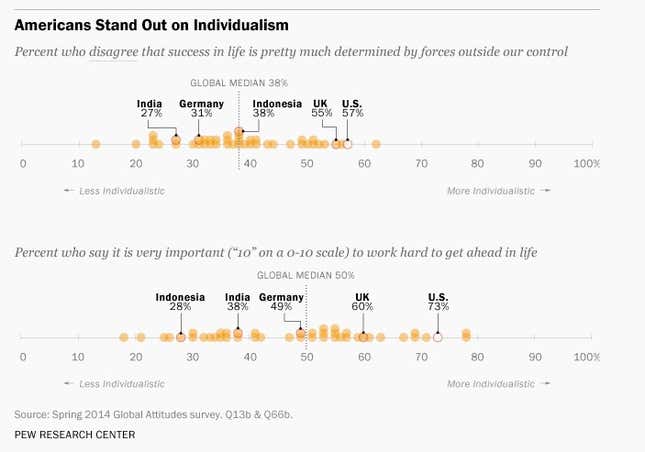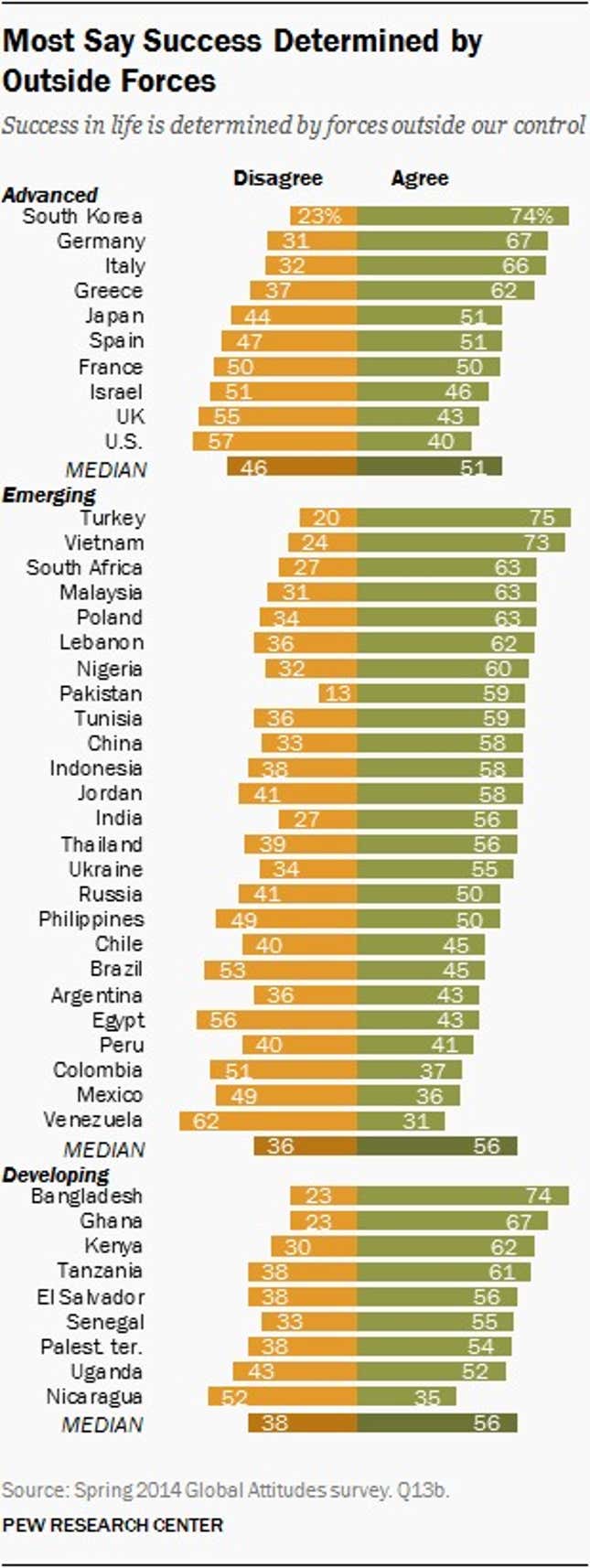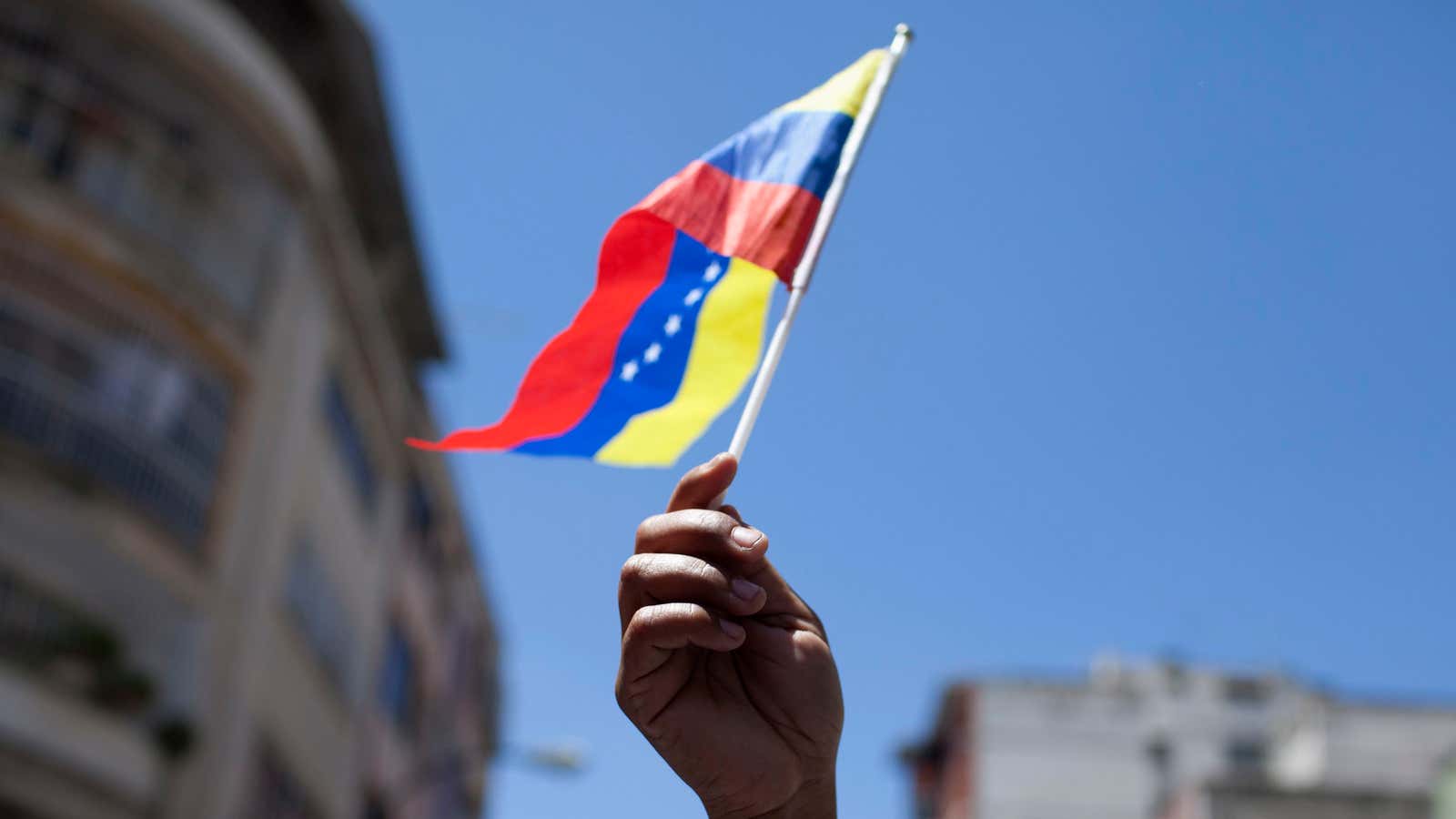The historian James Truslow Adams characterized the “American Dream” in his 1931 Epic of America as “that dream of a land in which life should be better and richer and fuller for every man, with opportunity for each according to his ability or achievement.”
The phrase—and the idea of the US as a place where hard work and elbow grease trumped the ancient hierarchies—was beloved by American writers and rhetoricians from Scott Fitzgerald to Barack Obama. Translated to politispeak, the “American Dream” has come to embody an individualistic ideal that is seen as distinctly American.
According to a recent Pew report, though, Americans don’t have a monopoly on individualistic thinking. The report—which concluded that people in emerging and developing economies are generally more optimistic about the future—also polled people on whether they feel that they can control their own success.
Pew asked people whether they agreed or disagreed with the notion that personal success is determined by factors outside of oneself. Unsurprisingly, given the US emphasis on rugged individualism, Americans were more likely to see success or failure in personal terms.

But interestingly, the US wasn’t the world leader when it comes to in individualistic thinking. In Venezuela, even more people than in the US saw success as personal, not a product of circumstances. And a number of other Latin American countries looked comparable to to the US.

Where does this Latin American version of individualism come from? There’s no culturally ubiquitous Latin American parallel to the idea of the American Dream. But Alvaro Vargas Llosa, a scholar from The Independence Institute, an independent research center, offered one explanation in a 2004 article.
Llosa writes that Latin American individualism arose not just in spite of state-centric, corrupt governments, but as a response to them. He argues that self-reliant ideals are rooted in old trade economies and in more modern times are stoked by “the informal (black-market) economy that represents a contemporary and inventive response by the people to the state’s illegitimacy.”
